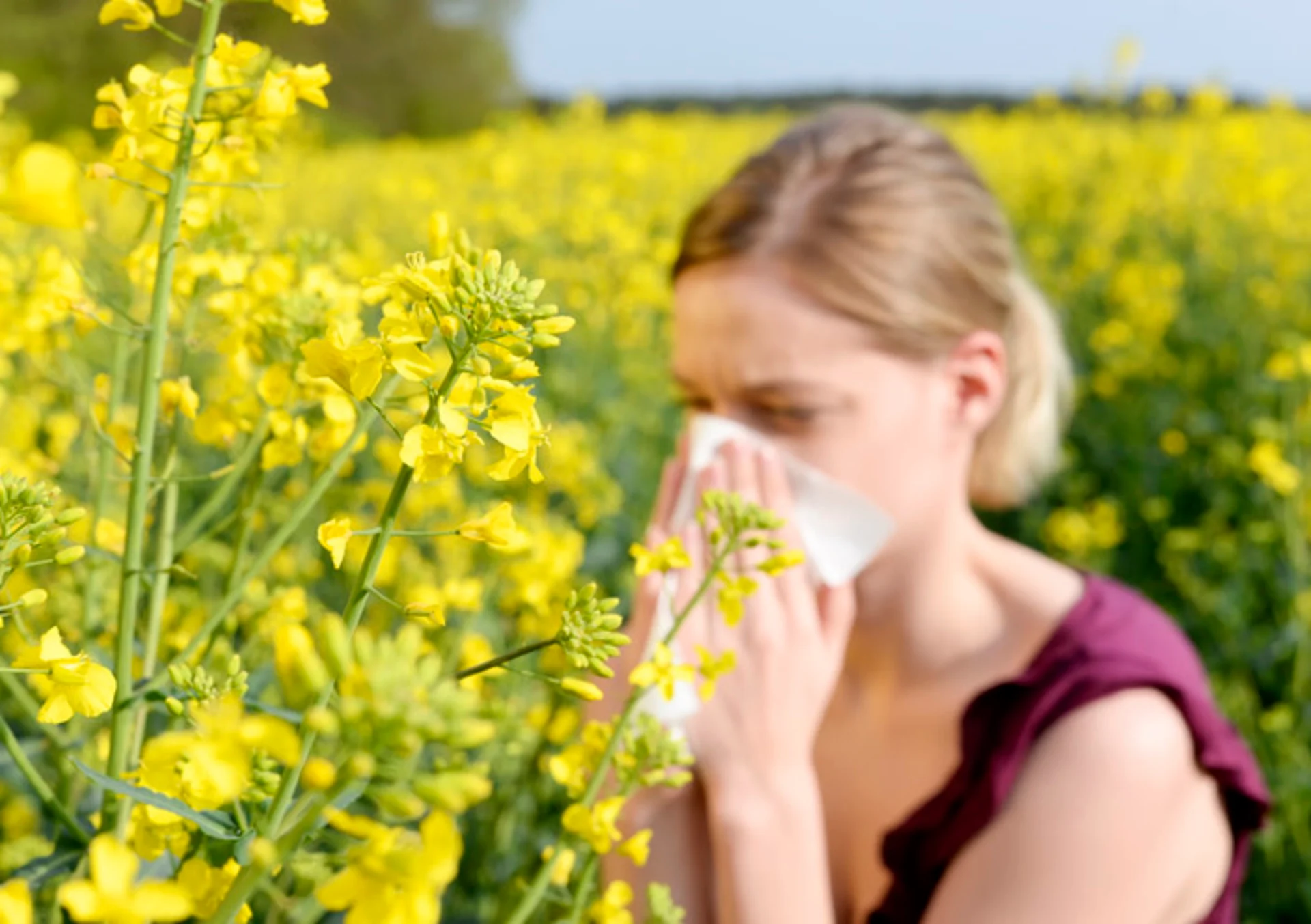
Canada's 2020 Pollen Report: What to expect this allergy season
It’s now spring in Canada. The sun is shining, the birds are singing, and love is in the air – and pollen too!
Clouds of it are being released, and for the sad group of seasonal allergy sufferers amongst us, that means lots of pesky symptoms, including itchy eyes and a runny nose.
Dr. David Fischer, an expert in allergic rhinitis, figures between 20-30% of Canadians have seasonal allergies – and it’s something to sneeze at.
“Many people look forward to spring, but springtime often turns out to be a terrible time for allergy sufferers,” Fischer, past president of Canadian Society of Allergy and Clinical Immunology (CSACI). “Which pollens are prevalent differs from province to province but the first seasonal allergy to pop up is tree pollen which could start as early as March.”
An early and warm spring is a bad sign for allergy sufferers. “All areas of Canada suffer from spring allergies, but the worst typically would be the Lower Mainland of B.C. where tree season, typically Alder, starts in February and goes through to June,” says Fischer.
It’s April to June in the rest of Canada, adds Fischer. “Granted, grass pollen allergies especially in Central Canada are associated with quite significant eye symptoms too.”
Many allergy sufferers are wondering what to expect this upcoming allergy season. “Pollen severity has to do with how quickly temperatures warm and how warm the temperatures get,” says Kelly Sonnenburg, meteorologist at The Weather Network.
Some parts of Canada are seeing a warm start to spring, and that could mean an earlier start than normal to the pollen season. “The spring season is known for bringing wild swings in the weather pattern for both temperature and precipitation,” says Sonnenburg, and we can expect swings in the temperature pattern through to the end of May.
Here’s a regional breakdown of the pollen season ahead across Canada, according to Dawn Jurgens, director of operations at Aerobiology Research Laboratories, which bases their pollen season outlook on The Weather Network’s long-range forecast.
BRITISH COLUMBIA
The long-range forecast predicts a warmer than normal spring across the region but since the region experienced colder than normal weather during March and the same is heralded for April, pollen levels may not be as high as typical at this time of year. That will quickly change as the weather warms and pollen levels will rise quickly, including pollen types like Willow and Ash starting in the next few weeks.
PRAIRIES: ALBERTA, SASKATCHEWAN AND MANITOBA
Expect to see some inconsistent warm weather this spring, including some colder days than expected. That means the spring pollen season to start a little later than usual and be a shorter season. If the weather quickly warms through April, we could see more high pollen level days than an average season.
ONTARIO AND QUEBEC
The Weather Network is forecasting temperatures to be noticeably warmer than the previous two springs but expect an interruption of colder than normal weather for a few weeks. That means the spring pollen season in most of Ontario will be later than normal and if the weather gets warmer in a short period of time, we could see more days of higher levels than the typical year, similar to the prairies.
ATLANTIC CANADA: NEW BRUNSWICK, NOVA SCOTIA, PRINCE EDWARD ISLAND, NEWFOUNDLAND AND LABRADOR
Spring will feature the typical temperature swings along with near to above-normal precipitation to the region. For the most part this should not affect pollen levels in a drastic way. Pollen levels will be in the low range for a while as the temperatures warm but expect the pollen season to be longer than normal in the area for 2020.
--
This article is based on an interview conducted by The Weather Network with Dr. David Fischer, an allergist/immunologist and Adjunct Professor at Western University. He is also past president of Canadian Society of Allergy and Clinical Immunology.
This article is based on an interview conducted by The Weather Network with Dawn Jurgens, director of operations at Aerobiology Research Laboratories in Ottawa.
This article is based on an interview conducted by The Weather Network with Kelly Sonnenburg, meteorologist at The Weather Network.